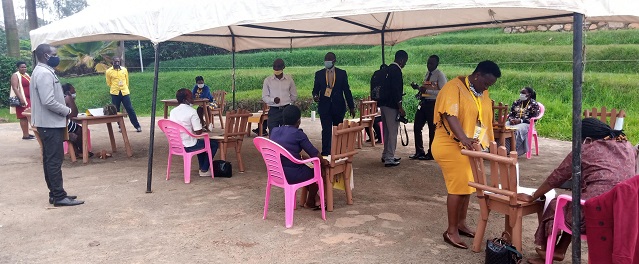
New cohort of local government leaders need to think about getting revenue from local tourism
COMMENT | WALTER AKENA | In May 2021, a new cohort of local government elected leaders will be sworn-in to drive the local development agenda for the next five years through policy formulation, resource mobilisation and community sensitisation among others.
They join at a time when local governments (LGs) are grappling with a myriad of challenges one of which is low financing. Also, their entry coincides with the policy shift in the planning framework from the Sector Wide Approach to Programme-based Approach to strengthen alignment of plans, budgets, and implementation at the macro, and local government level and focus on results. One of the key programmes under the Programme Based Approach is Tourism Development Programme.
The country’s ambitious aspirations under Vision 2040 of a transformed and modernised society and the commitments in Third National Development Plan (NDP III) places enormous responsibilities on the shoulders of local governments. NDP III recognises that local government planning and implementation is an essential driver for local economic development and a means to address area specific priorities and inequities in growth and household incomes.
Funds for LGs are mainly from three sources: Central Government Transfers, Donor Fund and Local Revenues which account for 90%, 7% and 3% of the total budget respectively. Section 80 (1) of The Local Governments Act empowers LGs to levy taxes such as fines rates, rents, royalties, stamp duties and registration and licensing fee among others.
Despite the revenue sources enumerated, local revenue base for districts remain worryingly low. The Auditor General reported that in FY 2019/2020, local governments had met less than 76% of their local revenue targets and advised LGs to initiate strategies to enhance local revenue base. This therefore means the new leaders do not have the luxury of doing business as usual. The challenge of inadequate local revenue can be addressed if leaders become more ingenious.
In China, the Chinese are cashing in from the most unlikely sources. They have been so creative in a way that even their misfortunes have turned into lucrative sources of revenue, including their height deficiencies. Imagine a tourist paying $40 to visit an ancient village and look at its small people in Hangzhou City. Tourists pay between of 40-70 dollars to simply climb a wall (The Great Wall) in Beijing. Interestingly, tourists comfortably pay to visit a former battle field of the Great Ming Dynasty in the Ningxia Province.
Vietnam equally turned the unfortunate event of the American War into a lucrative source of revenue by establishing the War Remnants Museum in Ho Chi Minh City which is now the most visited tourism site in the country.
Uganda has, in abundance, such opportunities whether from our history and rich culture or our beautiful landscapes that can be tapped into to turn around the fortunes of LGs. Karamoja region can for instance become a powerful destination for cultural tourism.
In the same vein, the different traditional foods around the country can become a potential tourist attraction. Local Governments can organise traditional food festivals or cultural exhibitions.
Furthermore, in Northern Uganda, the sad tale of the 20-year conflict is a potential source of tourism. Local Government leaders in Northern Uganda can jointly develop war museums and tourist sites that can become revenue sources.
Amuru and Agago Districts have a rich history of having been the sites of rebellions against the British in Acholi land. Leaders of these two districts should consider developing Guru-guru and Paimol into powerful tourist destinations and begin to cash in on it.
Local Governments in Bunyoro Sub-region can develop a war memorial of its traditional warfare as well as Luwero District from the 5-year liberation war which can become great tourist attraction sites.
The beautiful sceneries in Tororo (the rocks) should never be allowed to waste away when it can be tapped into for local revenue. In Pader, there is a budding tourist site (Aruu Falls) which leaders of the district should develop in partnership with the private sector.
Sheema, Mitooma, Amuru and Fort Portal are among districts with hot springs in them. Question is, what are the local government leaders doing with them?
Both the Uganda Tourism Act (2008) and the LGs Act (Cap 243) arrogate some responsibilities within the tourism sector to LGs. Under the LG Act, establishment and maintenance of museums and tourist centers are responsibilities of the LGs while Section 7(g) of the Tourism Acts enjoins the Tourism Board to delegate to LGs some of its functions commensurate to tourism sector.
Therefore, as the saying goes, better light the candle than curse the darkness; the new leaders should quit lamenting over dwindling funds but work out a solution instead. They should creatively think of harnessing the benefits of local tourism and expand their revenue base.
****
The writer is a Project Officer, Local Government Council Scorecard Initiative at ACODE
walter.akena@acode-u.org
 The Independent Uganda: You get the Truth we Pay the Price
The Independent Uganda: You get the Truth we Pay the Price



